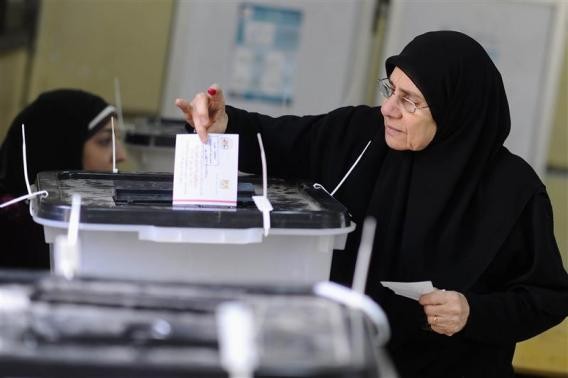
Voting resumes Wednesday in Egypt on the second day of the referendum for a new constitution formulated since the ouster of Islamist President Mohammed Morsi.
The new charter that is geared to replace the constitution passed under Morsi before he was ousted, is expected to shape the process of elections later in the year. The army chief Gen Abdel Fattah al-Sisi, who backed the overthrow of Morsi in July last year, is expected to stand for the post of president.
Although the first day of voting on Tuesday was reported to be generally peaceful, nine deaths have been attributed to the process. They died in clashes involving Morsi supporters.
The Muslim Brotherhood, a transnational Islamic political organization in the country, previously headed by Morsi and considered a terrorist organization by both the Egyptian and Russian governments, have boycotted the referendum.
The voting began Tuesday amid a large scale security operation with over 160,000 soldiers and about 200,000 policemen deployed across the nation.
Four people were killed and some more wounded in clashes in the Upper Egypt city of Sohag. The information, however, cannot be verified as details of the incident are disputed, the BBC reports.
The death of one person was also attributed to the clashes involving Morsi supporters in Nahia, in the Giza district of the capital Cairo. Another person was killed in Bani Suef, south of Cairo according to reports. The security sources have said that three other Morsi supporters were shot dead in the Cairo suburb of Kerdasa.
Turnout Unclear
There has not been a clear picture on the turnout on the first day of the voting. Al-Hayat TV reported quoting the justice ministry that the turnout "exceeded 50 percent in many polling stations" on Tuesday.
However, the media is currently supporting the new constitution and it has been speculated that they are simply reflecting on the government's point of view. Therefore, no information can be independently verified.
State-run media were describing the vote as a "democratic ceremony", a term that wasn't used after the ouster of Hosni Mubarak in January 2011.
The new constitution was drafted by a 50-member committee which included only two members from the Islamic groups. The authorities have reiterated that it is a crucial step towards achieving peace and stability in the country. But critics say that the new charter favours the army at the cost of the people and fails to add any good points to the 2011 revolution.
Following are the key resolutions under the new constitution:
1. The president will be allowed to serve two terms of 4 years each and can be impeached by parliament.
2. The state religion will be Islam. But absolute freedom of belief will be given. Minorities will be given protection.
3. The state confirms "equality between men and women".
4. The defence minister will be appointed by military for next eight years.
5. Parties may not be formed based on "religion, race, gender or geography".
Meanwhile, as the voting in the country continues, reports suggest that the US could restore its $1.5 billion aid to Egypt, which was suspended last year after the crackdown on pro-Morsi protests.











